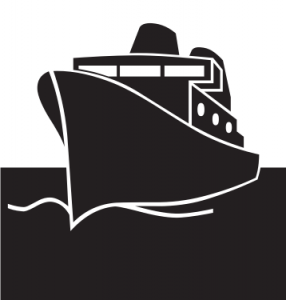 [Ed note: This is the first of a regular column on recent activities at the Port of Olympia. Its purpose is to offer information and ask questions about Port operations with the hope that informed public input will help guide the Port to fulfill its mission.]
[Ed note: This is the first of a regular column on recent activities at the Port of Olympia. Its purpose is to offer information and ask questions about Port operations with the hope that informed public input will help guide the Port to fulfill its mission.]
The city of Olympia developed around the waterfront in the mid-1850’s and became a hub of maritime commerce. From 1911-1912, 22 blocks were added to the downtown area through a huge dredging effort intended to create a deep water harbor. After WWI, Olympia became a center of lumber processing, and the Port, created by vote in 1922, served as a hub for log exports and a magnet for new industries along the waterfront. The idea behind ports governed by the public was to offer a means for the public to conserve local resources and guide commerce for the benefit of the community.
Following the money
This public purpose is reflected in an elected board of commissioners who set the direction for each district. Ports can fund activities to accomplish their mission in several ways. As property developers themselves, ports collect lease and rental income. Whether these revenue streams cover the costs to the Port of developing property is an issue this column will explore. The Port also collects fees or charges from users of their services – whether these charges cover the cost of the services is another question for the Port Report. Finally, our Commissioners also have authority to levy a tax on local assessed property — the Port’s average tax levy per household of $55-60 per year rose 27% in the last 2 years to become one of the highest in Washington State. We will also provide information — and possibly raise questions — about the Port’s several millions in outstanding General Obligation bonds.
Should we subsidize huge private corporations?
When I-5 was constructed in the 1950s, Olympia’s Port lost much of its competitive advantage to better situated ports in Seattle and Tacoma. The only business that still benefits from our location are those exporting logs from the immediate vicinity. The Port’s main clients today are large private lumber companies, predominantly Weyerhaeuser. Weyerhaeuser is one of the world’s largest owners of timberlands with 12.4 million acres in the US, much of it in Washington.
The Port as property developer
The Port of Olympia’s mission statement is “Creating economic opportunities by connecting Thurston County to the world by air, land, and sea.” It has been suggested that the Port should more rightly be named the Port of Thurston County. Besides operating the Swantown Marina and Boatworks, Harbor Patrol and the downtown Marine Terminal where raw logs are exported, the Port also has extensive real estate holdings in Lacey and Tumwater. In Tumwater, the Port owns and leases 1,540 acres including the Olympia Regional Airport and land west all the way to I-5.
What the community looks for from the Port
In an outreach to the community, the Port recently invited the public to complete a Vision 2050 survey asking for input on how they would like the Port to look, feel and function in the years ahead. So far, 1,048 community members have responded to the Vision 2050 survey. Among the highest of the priorities selected were 1) working with the City of Olympia to create a more welcoming downtown, 2) adding amenities and access along the waterfront, 3) pursuing green energy production alternatives, 4) supporting family wage jobs, 5) exploring ferry, water taxi service and regional air commuter service, and 6) providing transparency in budget planning. Environmental concerns topped the list with 84% of respondents wanting the Port to sustain legacy pollution clean-up projects in Budd Inlet. Maintaining the Marine Terminal cargo functions and looking for ways to leverage more tax levies garnered the least support in the survey.
Stay tuned to this column
Will the Port use these results to guide their actions? Stay tuned to this column as we explore the answer to this question along with more details on how the Port is spending our money. This is especially timely, since an election for Port Commissioner in the fall between Commissioner Joe Downing and Dr. Helen Wheatley could bring new energy to the Port and County.
Esther Kronenberg is a member of the Observer Corps of the League of Women Voters of Thurston County.

Be First to Comment